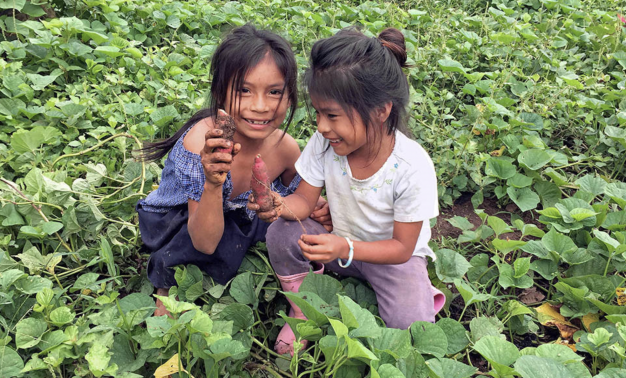
How a child’s environment can affect their personality
Certain personality traits found in children come from living in a city or rural environment, and not ‘who’ they are, say psychologists at a leading university.
A study of children from four countries revealed that qualities such as patience and being risk-averse were found in children raised in the Amazonian rainforest rather than those brought up in a traditional industrialized environment in the west.
Researchers from Yale University in the USA say the results of the study showed that being brought up in an urban setting could ‘dramatically shape’ the behaviour and actions of children.
‘Industrialization can “dramatically shape behaviour”
Dorsa Amir, an anthropologist and lead author of the study, said: “We tend to think of qualities like patience as an innate part of who we are but virtually all of what we know about how these behaviors develop comes from children in industrialized societies,”
The team compared choices made by indigenous Shuar children, who live in forager-horticulturalist societies in Amazonian Ecuador, to their peers from India, Argentina, and the United States. In a test aimed at gauging patience, children were told they could either get a piece of candy immediately or, if they waited until the next day, even more, up to five candies.
To assess tolerance for risk, children were asked to choose a marble from a bag with all yellow marbles guaranteeing them one candy or from a second bag, which contained five green marbles that would get them nothing, but also one red one, which would earn them a variable number of candies, from one to five.
‘Rainforest children showed less patience’
The Shuar rainforest children from the rainforest communities showed less patience than peers in developed countries, more often opting for the candy immediately. They were also much more risk averse, usually taking a sure bet from the bag of yellow marbles.
Amir said: “This is what we expected. With industrialization often comes buffers, like storable food or money. Perhaps because of that, kids can afford to be bolder.”
When the researchers ran the same tests with a second group of Shuar kids who lived closer to cities, they found little difference in the choices the second group of children made and those made by children in the industrialized countries.
“These Shuar kids were behaving more like the Americans, and less like their Shuar counterparts in the forest,” added Amir. “This suggests that industrialization can shape behavior rather dramatically, and if we really want to understand the full range of human behavior, we need to include participants from pre-industrial societies”.
Yarrow Dunham, professor of psychology at Yale was senior author of the study, published in the Journal of Experimental Psychology: General. It was funded mainly through a fellowship from Yale’s MacMillan Center.




